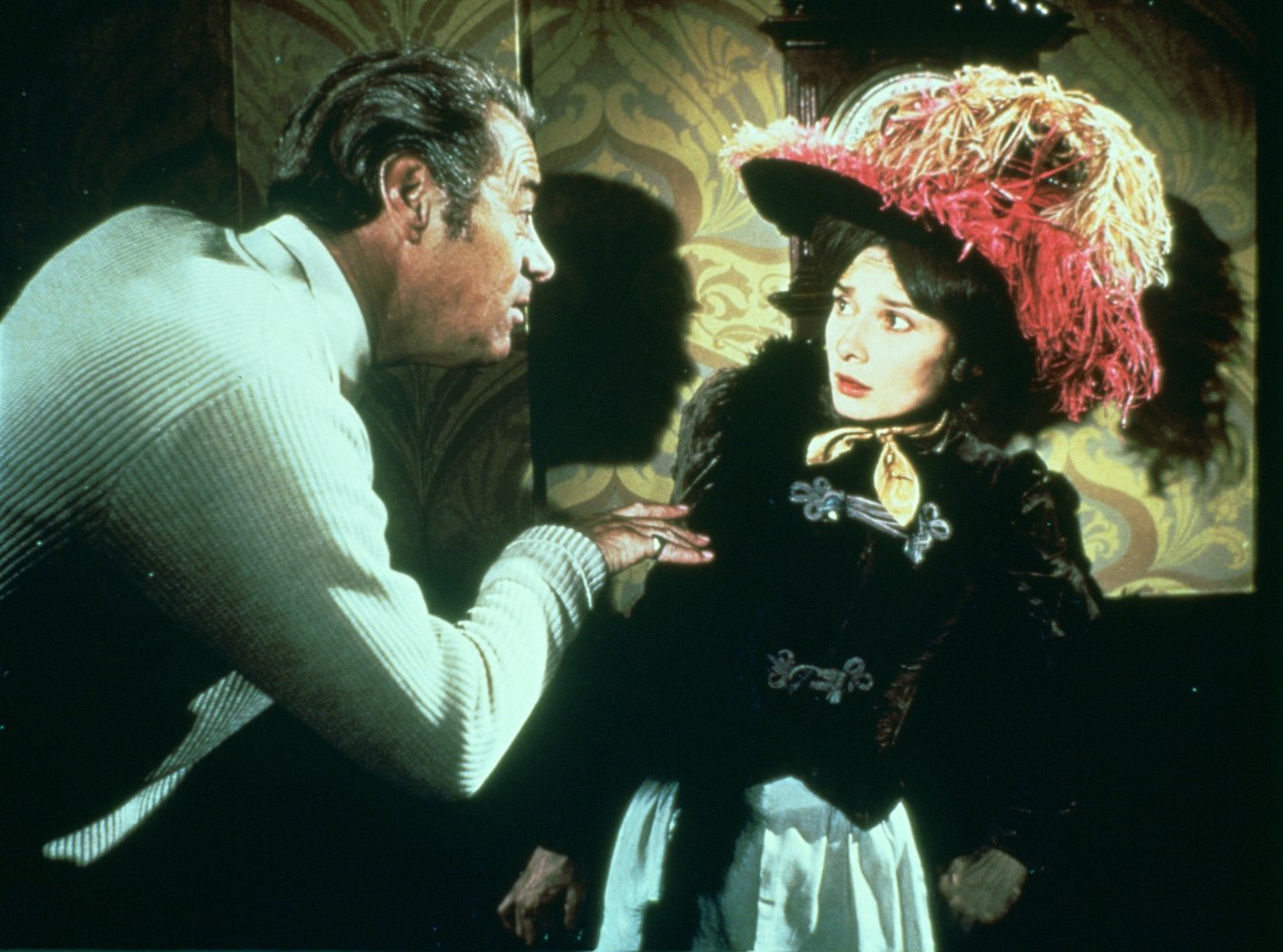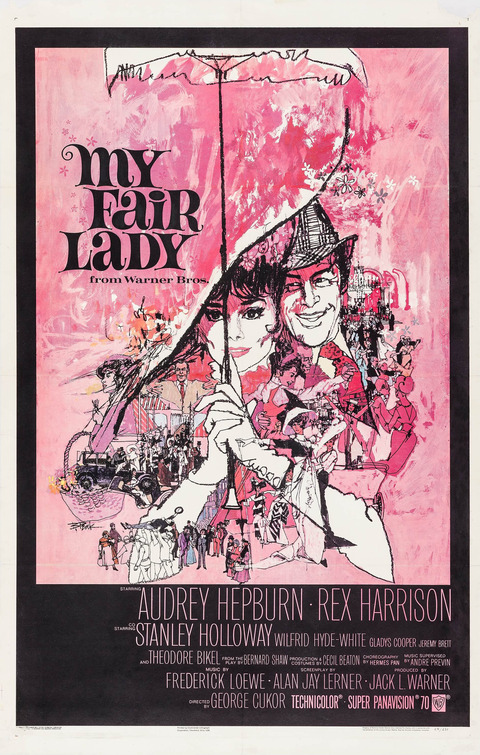Have you ever felt like you didn’t quite fit in, like your voice was drowned out by the noise of the world? Imagine stepping into the shoes of Eliza Doolittle, a spirited flower girl from the bustling streets of London, yearning to shed her humble beginnings and find a place in society. This is the heart of “My Fair Lady,” a musical masterpiece that captures the essence of transformation, not only through the power of language but also through the transformative journey of the human spirit.

Image: 1movies.life
“My Fair Lady,” a stage adaptation of George Bernard Shaw’s “Pygmalion,” tells the story of Professor Henry Higgins, a phonetics expert, who takes on the challenge of transforming Eliza from a “common girl” into a refined lady. The musical boasts a timeless score, filled with melodies that linger in your memory long after the curtain falls, and a lyrical tapestry that weaves together elements of romance, social commentary, and a poignant exploration of the human condition.
A Symphony of Sound and Transformation
The music of “My Fair Lady” is more than just a delightful accompaniment to the story; it’s a driving force that propels the narrative forward. Each song, from the lively “I’m an Ordinary Man” to the heart-wrenching “I Could Have Danced All Night,” is intricately woven into the fabric of the plot, highlighting character development, showcasing internal struggles, and underscoring the emotional arc of the story.
Eliza, with her raw, untamed spirit, begins her journey with a spirited ballad, “Wouldn’t It Be Loverly,” a wistful dream of a life beyond hardship. As she begins to embrace the world of refined etiquette, her voice takes on a new confidence, as heard in the beautiful and intricate “The Rain in Spain.” Through music, we witness Eliza’s transformation not just in language but in her understanding of the world and her place within it.
A Love Story Unfolded in the Language of Music
While the musical revolves around Eliza’s journey, it’s impossible to ignore the undeniable chemistry between Eliza and Professor Higgins. Their relationship, though initially antagonistic, blossoms into something deeper, fueled by an unlikely bond built upon a shared passion for language and a growing respect for each other’s intellect.
As Eliza sheds her old self, and Higgins grapples with his own rigid beliefs, their attraction transcends their social barriers, echoing the universal yearning for connection. The musical doesn’t shy away from the complexities of their relationship, portraying their flaws and their strengths with equal honesty.
Exploring Themes of Class, Identity, and the Power of Change
“My Fair Lady” is not just a romantic musical; it’s a social commentary that transcends time. The story exposes the rigid social structures of 19th-century London, where class inequality and rigid societal expectations cast a long shadow on individual aspirations. Eliza’s journey, though fueled by her own desire for self-improvement, becomes a powerful statement about the power of individual agency and the challenges of defying social norms.
The musical challenges us to think about the power of language and how it shapes our perceptions of ourselves and others. Professor Higgins’s belief in the transformative power of proper speech highlights the societal biases that often cloud our judgment. He initially sees Eliza as a project, an embodiment of linguistic imperfection, but as he guides her transformation, he grapples with the very essence of identity and the inherent value of genuine human connection.

Image: www.impawards.com
My Fair Lady Full Movie English
A Timeless Legacy of Music, Love, and Transformation
“My Fair Lady” remains a timeless classic, captivating audiences with its enchanting music, the compelling love story, and its exploration of personal transformation. It reminds us that even within the most rigid structures, the human spirit can find its voice, break free from societal expectations, and embrace a journey of self-discovery. The musical’s legacy lies not just in its beautiful music but also in the enduring themes of individuality, the power of love, and the profound impact of change that resonate with audiences across generations.
Whether you’re a seasoned theater enthusiast or a casual audience member, “My Fair Lady” offers a captivating experience. Allow yourself to be swept away by the elegance and grace of the musical, its exploration of the complexities of human relationships, and the sheer joy of musical expression. The next time you hear the iconic melody of “I Could Have Danced All Night,” remember the timeless story of “My Fair Lady,” a journey of transformation that speaks to the heart of every individual.






